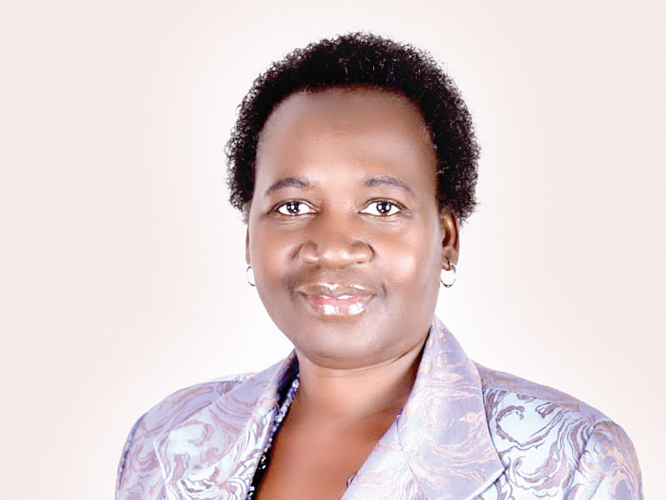Controlling behaviour and red flags GBV survivors often ignore

When Lilian Akinyi, 42, walked into marriage 20 years ago, she had dreams of building a peaceful and successful family with her husband.
She had little to worry about, after all, their relationship had ticked nearly all the checkboxes of a cool and calm family. Her husband had a stable job and was a principal at a secondary school in Seme, Kisumu County.
But like some victims of Gender-Based Violence (GBV), she had ignored all the red flags about her husband as they settled in Seme where he worked. At first, she had dismissed his controlling behaviour and had assumed he was just a caring person.
Little did she know that she would add to the statistics of women and partners, who succumb to destructive controlling behaviour by their spouses, which can drive one into depression.
Experts opine that controlling behaviour is one of the triggers of GBV between partners and is the reason some victims are subjected to physical and sexual violence.
Worrying statistics from various entities including the recently released Kenya Demographic Health Survey Report (KDHS), 2022, indicate that for every three out of five cases (62 per cent) women were subjected to controlling behaviour. Some culminated in physical and sexual assaults by partners.
The vice entails cases of husbands attempting to closely monitor and control their partners. According to the report, such partners are jealous when their partners talk to other men, insist on knowing where the partner is at all times and wrongfully make accusations of unfaithfulness, among others.
Prisoner in her own home
So prevalent is the vice that 54 per cent of women experienced three or more forms of controlling behaviour, according to the KDHS report.
And this is what Akinyi was forced to endure for more than 15 years. All her hopes of a peaceful marriage went up in flames and the dream to raise a family in a peaceful environment turned into a battle for survival against GBV.
She narrated to People Daily how things changed for the worse after giving birth to her first child. She claims her husband even stopped her from getting formal employment and restricted her to be a housewife who relied solely on him for all support.
What started as threats and strictness culminated into physical violence. She says the husband controlled all her aspects in life and did not permit her to even talk to male relatives.
“There was a day he beat me badly and I almost died. I was hospitalised for several weeks with serious injuries,” she explained.
Although the beatings had become a trend, she had held onto her marriage and tried her best to make it work. She sacrificed a lot and played by the script that the rogue husband was implementing.
“I tried to persevere for several years. The turning point, however, came when I was assaulted again badly and sustained physical injuries. I was rushed to the hospital,” she explains.
The mother of five says her husband even forced her to abort her sixth child following a disagreement. In the past, the husband had insisted that she bear him a child every year.
“He was extremely insecure to the extent that if he saw me speaking to any man be it a neighbour or relative, he would accuse me of sleeping with them. He would descend on me without listening to any explanations,” she said.
In early, 2020, she suffered serious injuries following another assault and spent several weeks in hospital. Her children, however, would later become her saviour and insisted that she return to her father’s home as the beatings worsened.
Saved by the children
“My children who visited me at the hospital broke down in tears and told me not to return home,” she explains.
She gathered courage and returned to her father’s home. She cut links with her husband and opted to start a new life.
Today, Akinyi is among the survivors who are running campaigns to enlighten other women about the dangers of controlling behaviour and GBV.
“My mental health was affected and I was struggling every day. It is an experience that almost pushed me to suicide,” she says.
“My father literally cried when he saw the bruises I had sustained as a result of the beating by my husband. He took me to hospital for specialised treatment,” she says.
She has now ventured into poultry and sheep farming to earn a living. “I currently have 17 sheep, which I’m rearing to keep me busy,” she said.
“It is by sheer luck that I sit here and narrate what I went through. It was a terrible experience that I would not wish on anyone,” she says.
For Rose Naliaka from Kimilili in Bungoma County, her experience at the hands of a controlling partner has made her vow to never get married again.
Rose shares how her husband controlled all her aspects of life and subjected her to physical violence on a daily basis.
“Every time he returned home and found out that I had not cooked or cooked late, it would be beatings,” she says.
She claims her ex-husband even restricted her from visiting her parents back home and claimed that she was planning to visit other men, disguising them as visits to her parents.
“It was hell. He placed my sim card on his mobile phone, which meant that anyone who wanted to talk to me had to go through him,” she explains.
Several attempts to find a solution including a visit to a marriage counsellor did not bear any fruits and she finally decided to walk out of the marriage last year.
According to the KDHS 2022 survey, one’s marital status is also directly linked to experience of violence among women. Those who have ever been married are much more likely to have experienced violence since the age of 15 compared to those who have never been married.
By county, the percentage of women who have experienced physical violence since the age of 15 is highest in Bungoma (62.2 per cent) followed by Muranga (53.7 per cent), Homa Bay, (53.5 per cent), Migori (51.1 per cent), and Samburu (48.6 per cent).
The figure is lowest in Mandera at nine per cent.
Additionally, the highest percentage of women whose husbands or intimate partners display three or more specific controlling behaviours are in Murang’a (36 per cent), Embu (32 per cent), Kiambu (29 per cent), and Taita Taveta (29 per cent) counties.
Power play and manipulation
KDHS 2022 report further indicates that four in 10 women who have ever had a husband or intimate partner have ever experienced economic, psychological/emotional, physical, or sexual violence perpetrated by their current or most recent husband/intimate partner.
On the flipside, young men aged 19 years and below have experienced physical violence more than women. The survey indicates that the percentage of men who have experienced physical violence since 15 years old stood at 29.2 per cent as compared to 19.5 per cent for women. 
According to Dr Loice Okello, a psychologist, partners who are controlling focus on manipulation and power play. “This means that they are able to make the other person do whatever they feel they need to do, which makes them feel in control, “she said. 
She added that it means that when they are abusing the person, the victim will not be able to have a voice.
She shares how controlling behaviour is among the behaviours that are currently worsening GBV resulting from drug abuse and mental illness.
To handle a person with controlling behaviour, she says the victims would be required to get out for safety.
“The safety here means that they are either in a safe place or have definitely stepped out of that environment. Then the two of them would have to go through behaviour change for the person to stop the kind of the behaviour against the victim,” she says.
The psychologist says socialisation and upbringing of a person, usage of drugs, certain mental illnesses that manifest in aggression and childhood trauma are some of the causes of controlling behaviour.
According to Roseline Sijenje, a nurse in charge of the GBV rescue centre at the Jaramogi Oginga Odinga Teaching and Referral Hospital (JOOTRH), controlling behaviour can lead to depression and suicidal thoughts.
She also concurred that controlling behaviour is among the catalysts that is currently worsening GBV in the country stating that she does not believe in someone coping in such a situation without changing. At the centre, 50 per cent of GBV cases that are reported involve partners.
Last month, she says a total of 19 cases of physical abuse were reported at the facility while 196 cases of emotional abuse were reported in the month of June.
Women suffer most
Financial issues, she says, are a major cause of violence if the cases reported at the centres are anything to go by.
A Nairobi-based group dubbed Shining Hope For Communities (Shofco) has started an exercise to offer free legal aid to victims of GBV in the Kisii area. The cases range from rape, defilement, incest, child molestation and battering on both men and women.
So far, Shofco has recorded 30 cases in four sub-counties that need immediate legal aid to have perpetrators face the law.
According to UN Women, almost one in three women have been subjected to physical or sexual intimate partner violence. According to their survey, most violence against women is perpetrated by current or former husbands or intimate partners. 
This is corroborated by another finding by the World Health Organisation (WHO), which indicates that one in three women globally experience physical violence from an intimate partner in their lifetime. Some of the instances of violence emanate from controlling behaviour.
The reports highlight the dire need for counselling for partners to enable them to manage controlling behaviours.
Furthermore, there is a need for policymakers to consider laws that are tailored towards addressing controlling behaviour.




